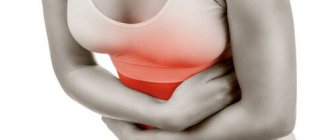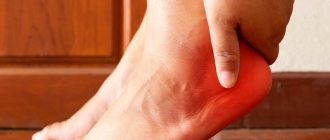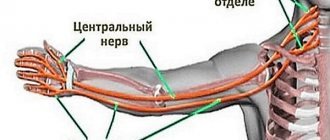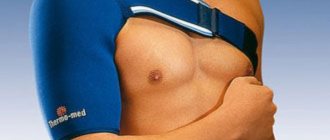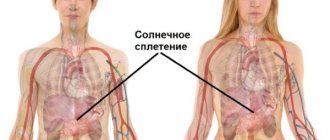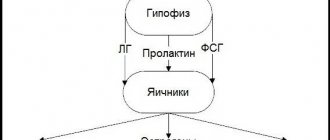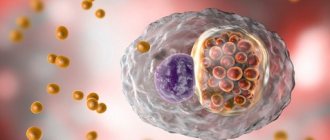In some cases, tremor (shaking) of the hands is a completely physiological phenomenon and goes away on its own.
Its frequent repetition and increase signal disruptions in the normal functioning of the body. Over time, shaking hands become a cause of anxiety, the development of complexes and seriously reduce the quality of life. Silencing this problem and trying to hide it from others does not lead to anything good and, in most cases, only aggravates the problem.
In our article we will try to answer questions about when and why hand tremors should be a reason to see a doctor, and in what cases it is an absolutely normal physiological reaction of the body, we will give tips and recommendations for diagnosis, including at home , and treatment of this pathology.
Why your hands shake: reasons
Tremor refers to an involuntary oscillatory movement (shaking) caused by muscle contraction. Trembling can be short-term and constant, and the amplitude of movements can also differ - from barely noticeable to very frequent and sweeping.
Tremor can affect different parts of the body: when seeking medical help, some patients complain of trembling in the limbs, others have a shaking head, and in others the whole body. Trembling can be observed on one side (tremor of one hand) or be symmetrical. In this article we will take a closer look at such a condition as tremor in the hands.
Experts distinguish between physiological and pathological tremor.
- In the first case, we are talking about a functional disorder (primary tremor), not associated with any disease - as a rule, such a disorder is temporary and does not require special treatment.
- Pathological (secondary) tremor is a symptom, consequence and/or complication of a certain disease.
general characteristics
Trembling hyperkinesis is a common type of involuntary movements.
Although symptoms occur at any age, including childhood, higher rates occur in people over 65 years of age. Tremor feels like a rhythmic shaking. It is often observed in the hands, reminiscent of counting coins or rolling pills, but can also affect other parts of the body: the head (movements like “yes-yes” or “no-no”), torso, feet. Sometimes the chin, tongue, and vocal cords are involved in the pathological process, which interferes with eating and disrupts the function of speech formation. Isolated tremor is not life-threatening, but violent movements make daily activities significantly more difficult. Hand tremors create difficulty in writing, drawing, holding cutlery, and other activities that require fine motor skills (dressing, manual labor). Tremor limits professional and social activity, creates psychological discomfort, and reduces quality of life. Some types of hyperkinesis progress over time and are accompanied by neurological deficits, while others disappear with the elimination of the causative factor.
Physiological (benign) tremor
- Excitement, fear and anxiety are a fairly common explanation for why arms and legs shake. This state is well known to emotional people who are intensely experiencing certain events and who take everything that happens around them to heart. In such situations, people say “the ankles are shaking,” implying feelings of strong excitement. Once a person calms down, the tremor disappears on its own.
- Prolonged physical stress is another cause of involuntary trembling of the limbs. Professional athletes, people whose profession involves strenuous work with small objects (jewelers, watchmakers, surgeons), as well as loaders - it is not uncommon for them to experience muscle trembling under tension.
Figure 2 - Why do the hands of young and old people shake?
- Trembling limbs in infants is often due to the fact that their nervous system is not fully formed. Temporary tremor occurs under the influence of various stimuli: for example, the child is hungry, scared, does not want to bathe, change clothes, etc., and against the background of all this, rhythmic muscle contraction can be observed. Of course, parents need to ensure that the baby is monitored by a specialist to make sure that the baby’s development is progressing normally (tremors are often observed in the first months of a child’s life in cases where there was a difficult pregnancy and/or birth injuries).
- Hand trembling at a young age can be associated not only with anxiety (for example, during exams), physical overexertion during sports training, but even with ordinary hypothermia. The latter sometimes leads to involuntary muscle contraction, resulting in shaking hands. Another reason for shaking hands in teenagers is hormonal imbalances.
- People who abuse alcoholic beverages and also take various stimulants (drugs, tranquilizers) deserve special attention. Why are their hands shaking? Alcohol and drugs overstimulate nerve cells (resulting in uncontrolled muscle contraction), which can lead to damage to the nervous system and brain.
Figure 3 - Addiction to alcohol is one of the reasons why hands shake
It should be noted that temporary trembling of the hands can be a consequence of the effects of tonic drinks (strong tea, coffee), as well as medications. Before taking any medicine, you need to carefully study the instructions - tremor may be indicated in the side effects section (some chemical compounds, affecting the psychoneurological sphere, cause undesirable consequences).
If trembling of the limbs is a functional disorder, it is enough to eliminate the provoking factor, and the unpleasant phenomenon will go away on its own. For example, in case of alcohol poisoning, it is necessary to detoxify the body, and hand tremors will disappear (provided that at this stage brain damage has not yet occurred and toxic polyneuropathy has not developed). If the tremor bothers you for a long time (more than two weeks), you need to undergo an examination.
Choose the care your relative needs
For patients after a stroke
For patients after a stroke
A person after a stroke becomes practically helpless, especially if he is elderly. Elderly people are much more difficult to tolerate this disease. Patients after a stroke need quality care and, in addition, rehabilitation, which will partially or even completely restore lost functions. Many relatives cannot cope with elderly people due to lack of time or other reasons.
Price from 1,700 rub.
More details Leave a request
For bedridden patients
For bedridden patients
In the boarding house for the elderly “Zabota”, comfortable conditions are organized for each bedridden patient. The wards are guaranteed quality care and assistance. Our charges are under constant supervision. We provide care for bedridden patients after a stroke, hip fracture and other diseases and help them get back on their feet.
Price from 1,700 rub.
More details Leave a request
For Alzheimer's patients
For Alzheimer's patients
In the initial stages, an Alzheimer's patient is almost impossible to distinguish from an ordinary person. His memory loss is not critical and occurs in periods. But over time, the disease progresses. Alzheimer's patients are characterized by indifference to reality, the inability to retain any events in memory, and loss of mobility. His immunity weakens, and diaper rash and bedsores may develop. Caring for such patients, and especially rehabilitation, is the task of professionals. In this case, it is difficult to do without the services of a specialized boarding house and qualified personnel with medical education.
Price from 1,550 rub.
More details Leave a request
For invalids
For invalids
Caring for a person with disabilities is quite difficult. Due to various reasons and busy schedules, the patient’s relatives have neither the strength nor the time to provide quality care to an elderly disabled person. It is in such cases that boarding houses for elderly disabled people of the “Zabota” network, located outside of Moscow in ecologically clean areas of the Moscow region, come to the rescue.
Price from 1,550 rub.
More details Leave a request
For seniors with dementia
For seniors with dementia
When choosing a room and rehabilitation program for patients, we focus on their individual characteristics, as well as their emotional and physical state. The program includes classes aimed at building new neural connections in the brain. These are exercises for the development of fine motor skills, breathing exercises, repetition of once familiar songs, stories, educational games, classes with a psychologist, etc.
Price from 1,500 rub.
More details Leave a request
Elderly care
Elderly care
When registering a relative in a specialized boarding house due to various circumstances, you can be completely sure that he will be surrounded by care. We provide comprehensive care for the elderly, which significantly improves the quality of life.
Price from 1,400 rub.
More details Leave a request
For Parkinson's patients
For Parkinson's patients
The network of boarding houses "ZABOTA" offers care for elderly people suffering from Parkinson's disease.
Price from 1,550 rub.
More details Leave a request
For patients after a heart attack
For patients after a heart attack
Professional care for patients after a heart attack in boarding houses of the “ZABOTA” network is carried out under the constant supervision of a general practitioner and a geriatrician. Rehabilitation measures allow you to gradually, in several stages, return the patient to his previous physical activity. Myocardial infarction is a condition that occurs as a result of a sudden cessation of coronary blood flow due to thrombosis of a coronary vessel and the development of foci of necrosis in the heart muscle. The cerebral version of myocardial infarction resembles a stroke, since its symptoms also include confusion and speech.
Price from 1,550 rub.
More details Leave a request
For patients with diabetes
For patients with diabetes
The blood sugar level of a diabetic patient also depends on his daily diet. Therefore, the food in the network of boarding houses “Zabota” is dietary - developed by nutritionists taking into account the characteristics of the human body in old age. Contrary to the erroneously established opinion about nursing homes, the food in our boarding houses is not only healthy, but also delicious. The menu is not repeated for 21 days. Our guests' diet includes seasonal vegetables and fruits every day.
Price from 1,500 rub.
More details Leave a request
Recovery after a hip fracture
Recovery after a hip fracture
One of the most common injuries in old age is a hip fracture. After a hip fracture, a person loses the ability to move independently. Private boarding houses "ZABOTA" set themselves the task of not only getting our guests back on their feet after a hip fracture, but also returning them to the previous full-fledged lifestyle that they led before the fracture. Statistics have shown that about 70% of older people can move independently within two to three weeks, and after six months they completely return to their normal lifestyle.
Price from 1,600 rub.
More details Leave a request
Antidepressants
Psychotropic substances affect the level of neurotransmitters (serotonin, dopamine and norepinephrine). Their action is aimed at restoring the nervous system. They improve mood, reduce anxiety, melancholy, fear, restlessness, and irritability. Increase appetite, normalize sleep. Only a psychiatrist can prescribe antidepressants after making an accurate diagnosis. He selects a specific drug and prescribes the dosage. Uncontrolled use of the drug entails complications that threaten human life.
Inhibitors
Tablets for shaking hands (tremor) are prescribed for nervous disorders (essential type). These include Diacarb, Neptazan, Temozolomide. The trouble may be that when eating food, the taste buds will be muffled.
Leave a request for selection of a boarding house
for an elderly person with hand tremors
Benzodiazepines
Xanax, Alprazolam, Clonazepam are prescribed in exceptional cases when other medications have not brought a positive result.
Anticonvulsants
They are great for helping with small fluctuations, but in advanced forms of the disease they are useless. "Primidon" is not prescribed to all patients, since it may not be suitable for a particular citizen.
Pathological tremor: causes
Pathological trembling of the limbs is usually associated with various deviations of the nervous system (disruption of the activity of various parts of the peripheral and central nervous system). Hand tremors in this case are a symptom of a serious systemic disease. Most often, prolonged trembling of the limbs is associated with the following pathologies:
- Parkinson's disease. Tremor occurs as a result of damage to the subcortical structures of the brain. Feature - trembling increases during periods of rest and decreases when performing any actions. Often the tremors are asymmetrical in nature (there is less tremors on one side and less tremors on the other).
Figure 4 - Incurable neurological disease - Parkinson's disease
- Multiple sclerosis. Another disease in which the hands shake (with multiple sclerosis, the upper limbs most often tremble).
- Damage to the cerebellum. The causes of damage (changes in the cerebellum) are most often poisoning and traumatic brain injury. Feature – trembling intensifies with active and purposeful movements.
- Diseases of the endocrine system. Hand trembling is a fairly common symptom in people with endocrine disorders. Tremors often occur due to an excess of thyroid hormones. Along with this symptom, patients complain of weakness, increased sweating and irritability.
- Alzheimer's disease (hand tremors are one of the symptoms of the disease).
- High or low blood pressure.
- Cervical osteochondrosis. This disease leads to impaired blood supply to the brain, which can cause neurological pathologies.
Figure 5 - Degenerative changes in the cervical spine
- Encephalitis (after a bite by an encephalitis tick, convulsive trembling of the hands usually appears).
- Hypoglycemia (a decrease in blood glucose levels increases the activity of the sympathoadrenal system, and, as a result, tremors appear in the hands).
- Poisoning – food, chemical, medicinal. When poisoning occurs, the body becomes intoxicated. Due to toxins, normal motor activity is disrupted, which can result in tremors.
A special type of pathology is essential tremor. As a rule, this is a hereditary disease that is not associated with disorders of other systems. A person complains of periodic trembling of the limbs (most often of both hands), sometimes this manifests itself when writing (writer's cramp). The first symptoms of the disease usually appear after 45 years of age.
Treatment
Conservative therapy
Treatment of tremor is intended to reduce functional limitations and social maladaptation of patients. The basis of therapy is conservative methods, which are usually symptomatic. If secondary tremor is detected, treatment involves eliminating the causes of its occurrence and correcting the underlying pathology. Among the therapeutic measures used:
- Lifestyle optimization.
It is necessary to avoid situations that increase the intensity of trembling. In the early stages of the disease, patients are recommended to master adaptive methods - use pens and cutlery with thick handles, blunt scissors and knives, phones with voice control, etc. - Physical methods.
Methods of physical influence include the use of special orthoses that limit the mobility of the hand in the wrist joint. Assistance in mastering simple motor patterns is provided by physical therapy and occupational therapy, which are complemented by massage, reflexology and balneotherapy. - Pharmacotherapy.
Several groups of drugs are indicated for the treatment of tremor. Based on clinical feasibility, anticonvulsants (primidone, topiramate, gabapentin), antiparkinsonian drugs (levodopa, amantadine, pramipexole), beta-blockers (propranolol, atenolol, nadolol) are prescribed. For severe tremors of the head and voice, botulinum toxin A injections are performed.
Diagnosis of tremor
If you experience tremors in your hands, you should first consult a therapist. In the future, you may need the help of a neurologist, psychologist, toxicologist, endocrinologist and/or other specialists.
When diagnosing, the doctor focuses on the patient’s complaints. An external examination and functional tests are carried out (the patient is asked to stretch his arms forward, write something, the sensitivity of different parts of the body is checked, gait is assessed, etc.). Additionally, laboratory tests may be prescribed (if endocrine diseases are suspected), as well as MRI and/or CT scan of the brain.
Folk remedies
The doctor offers alternative treatment methods to the therapeutic complex:
- Starvation. It helps reduce muscle spasms, mobilizes the work of all organs of the body, and improves immunity. For older people, this method is indicated only under the supervision of a medical professional.
- Treatment with leeches and bees.
In addition, we recommend using decoctions and infusions from alternative medicine:
- If there is a lack of iodine in the body, chew 5-6 apple grains every day.
- Drink 1 tablespoon of propolis tincture three times a day before meals. The duration of the course is one month. Grind 50 g of the ingredient in a blender, pour vodka over the mixture, and place in a dark place for 2 weeks. Then strain and drink in the required dosage.
- Buy ginseng tincture at the pharmacy. 20 drops is the daily intake.
- 4 tbsp. Pour boiling water over motherwort and drink ⅓ glass after two hours.
- Place 1-3 tansy flowers in your mouth, chew, swallow the saliva, and spit out the cake.
- Pour 60 grams of St. John's wort with hot water and place on low heat for 20 minutes. Cover with a lid and leave to cool overnight. Drink 4 times a day before meals.
- Herbal infusion. Take equal quantities of rosehip and cyanosis roots, herbs: motherwort, mint, rosemary, St. John's wort. Add hop cones. 3 tbsp. collection, pour 500 ml of 40% vodka and let it brew for three weeks. Then put the mixture in the refrigerator. Take 2 drops with warm water. The course is at least two months.
Types of tremor
Different diseases have their own characteristic signs, and in order to figure out why your hands are shaking, the doctor clarifies how exactly the pathology manifests itself. Thus, a distinction is made between resting tremor and action tremor.
In the first case, involuntary movements occur when a person does not do any active actions (just sits, stands, lies). In the second case, the opposite is true: during rest there is no trembling, but as soon as a person wants to do something (pick it up, put it down, etc.), uncontrolled muscle contractions begin.
In addition, doctors distinguish between several types of tremor depending on the source of the disorder. For example, if tremors are associated with damage to the cerebellum, they speak of cerebellar tremor; if nerve fibers are damaged, neuropathic tremor is diagnosed. One of the most difficult cases is damage to the midbrain (rubal tremor). If your medical record says “dystonic tremor,” then the problem is related to disturbances in the functioning of the muscular system.
Figure 6 - Cerebellum
General clinical picture
Symptoms associated with hand tremors:
- for an essential type of disorder it is typical that in the later stages of the disease mild cerebellar dysfunctions appear: ataxia, disturbances in coordination of movement, balance when walking;
- the parkinsonian type is accompanied by hypokinesia (limited mobility), postural instability (impaired balance), rigidity (a sharp increase in the tone of anatomical structures);
- the dystonic type is accompanied by a pathological posture in the affected part of the body;
- Holmes tremor is characterized by additional symptoms: rigidity, poor coordination, imbalance, other brainstem symptoms (dizziness, difficulty swallowing, floating movements of the eyeballs);
- cerebellar tremor accompanies coordination impairment, dysmetria (a person cannot hit the target), adiadochokinesis (difficulty performing alternating movements at a fast pace).
Our boarding houses
Ramensky
Sheremetyevsky
You can use any recipe based on the ingredients provided. Just remember that before using them, you need to consult with your doctor. Otherwise, complications may arise that will be difficult to cope with.

